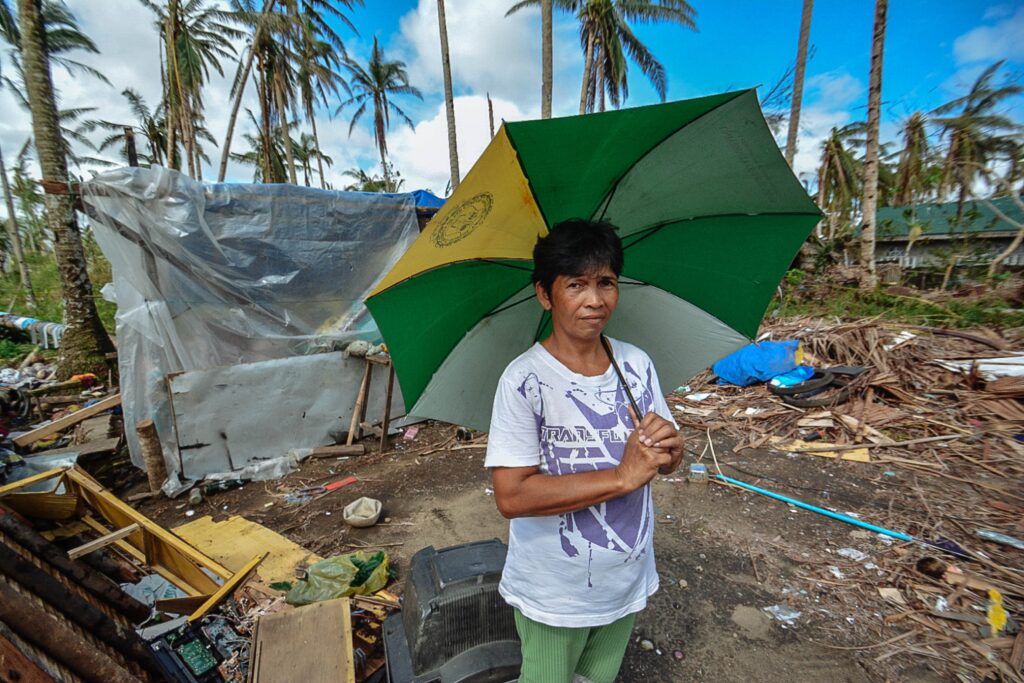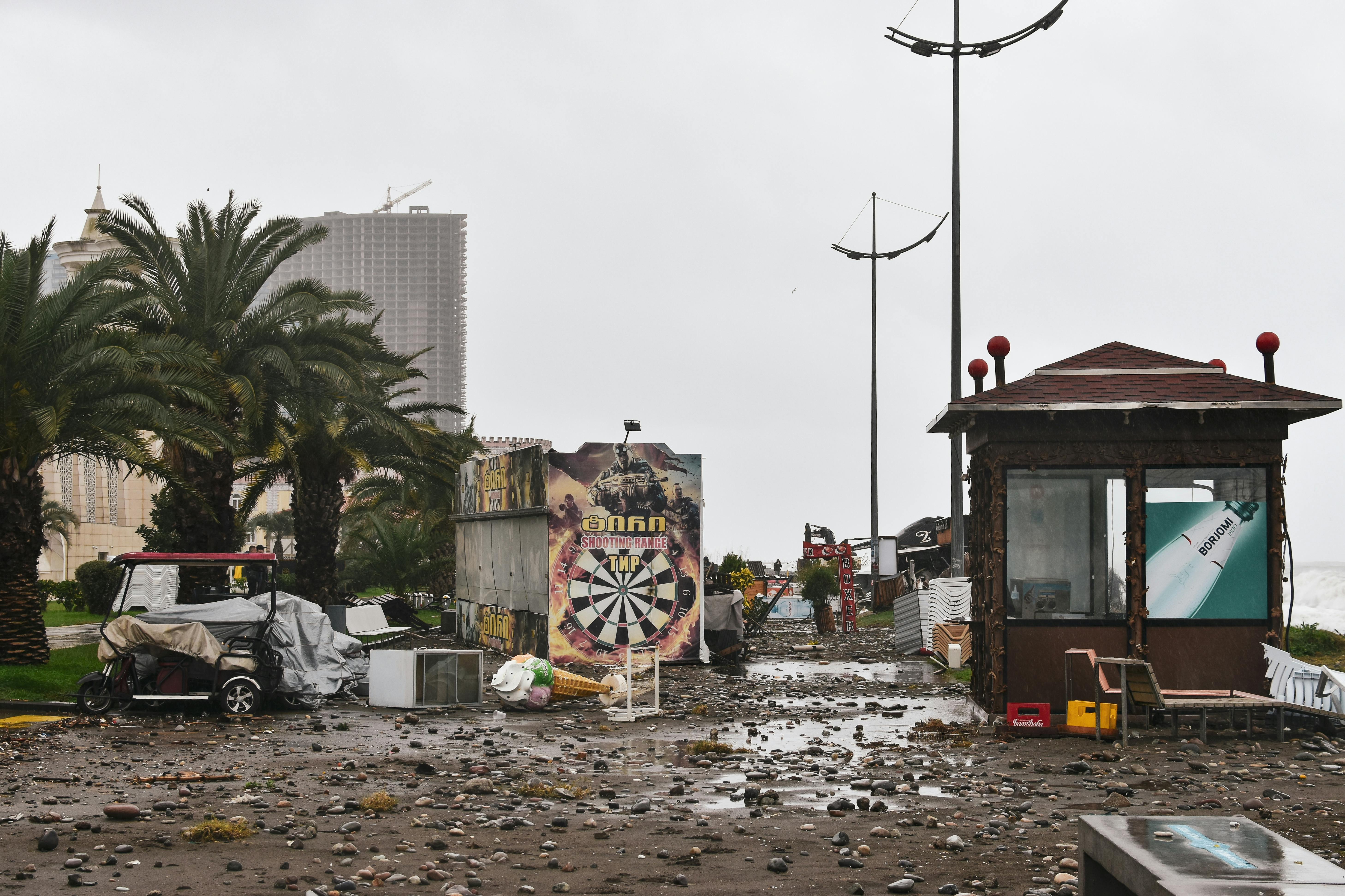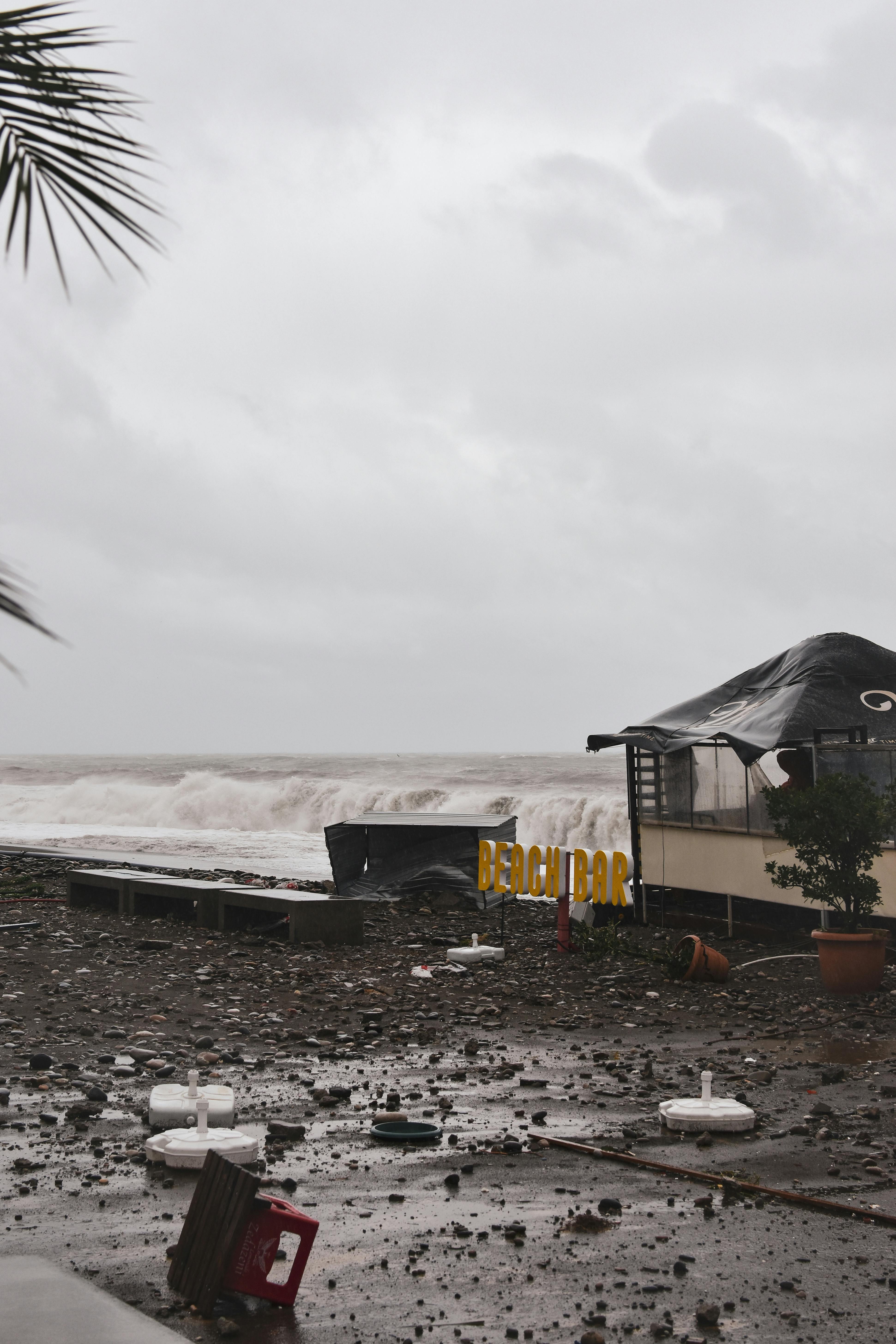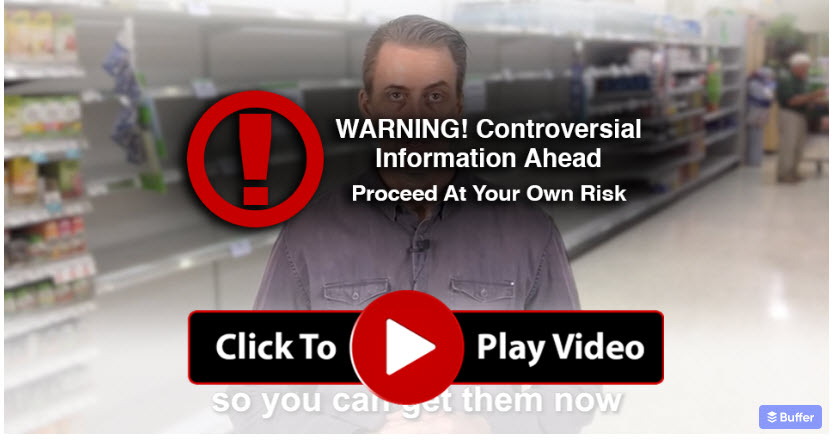In this article, you will learn all about hurricane procedures – the essential steps you need to take to stay safe and prepared when a hurricane is approaching. From securing your home to stocking up on necessary supplies, we will guide you through the necessary actions to protect yourself, your loved ones, and your property during any potential hurricane event. Whether you live in a hurricane-prone area or are simply looking to educate yourself on storm procedures, this article will provide you with the knowledge and peace of mind you need when facing the powerful force of nature.
Preparation
Understanding the Threat
Before a hurricane strikes, it’s crucial to understand the potential threats it poses. Hurricanes bring strong winds, heavy rainfall, storm surges, and the risk of tornadoes. Familiarize yourself with the different categories of hurricanes and the potential damage they can cause. Stay informed about hurricane watches and warnings issued by local authorities.
Creating an Emergency Kit
Having an emergency kit ready is essential for hurricane preparedness. Your kit should include essential items such as non-perishable food, water, flashlights, batteries, a first aid kit, medications, personal hygiene products, and important documents. Ensure that your kit is easily accessible and that all family members know where it is located.
Developing an Emergency Plan
In the event of a hurricane, having a well-thought-out emergency plan ensures everyone’s safety. Determine evacuation routes, identify a safe meeting point for family members, and assign responsibilities for each family member. Plan for the needs of elderly or disabled individuals and discuss emergency procedures with children. Regularly review and update your emergency plan to keep it relevant.
Securing Your Property
Before hurricane season begins, take preventive measures to secure your property. Trim tree branches that could potentially damage your house during strong winds. Reinforce windows and doors or install hurricane shutters. Ensure that your roof is in good condition and repair any loose tiles or shingles. Clear your gutters to prevent water buildup.
Making Necessary Arrangements for Pets
Don’t forget about your furry friends when preparing for a hurricane. Have a plan in place for their safety as well. Prepare a pet emergency kit with food, water, medication, and their vaccination records. Identify pet-friendly shelters or hotels in your evacuation routes. Remember to have a secure carrier or leash for your pet and include them in your evacuation plans.
Evacuation
Determining Evacuation Zones
Find out if you reside in an evacuation zone and familiarize yourself with the routes leading out of the area. Local authorities will announce evacuation zones based on the projected path and severity of the hurricane. Stay informed through emergency management websites, local news, or by contacting your local authorities.
Monitoring Official Evacuation Orders
When authorities issue evacuation orders, it is crucial to prioritize your safety and comply with their instructions. Follow official announcements from your local authorities or emergency management offices for the latest updates. Avoid delays and leave early to ensure a smooth evacuation.
Preparing Evacuation Routes
Plan and prepare your evacuation routes before the hurricane hits. Identify multiple routes to your designated safe location in case one becomes inaccessible. Consider potential congestion on major roads and plan accordingly. Share these routes with family and friends so they can be aware of your plans.
Gathering Essential Documents and Valuables
Collect and gather all essential documents like identification cards, passports, insurance policies, and financial records. Place them in a waterproof and portable container for easy transportation. Make copies of these documents and keep them in a separate location. Gather valuable items such as jewelry, family heirlooms, and irreplaceable photos, and bring them with you during the evacuation.
Communicating Evacuation Plans with Family and Friends
Ensure clear and constant communication with your family and friends regarding your evacuation plans. Share your emergency contact information, the location you are evacuating to, and the routes you plan to take. Establish check-in points to update each other on your safety and well-being. Staying connected with loved ones provides peace of mind during stressful situations.
Sheltering in Place
Choosing a Safe Room
If evacuation is not necessary or not possible, identify and designate a safe room within your home to shelter in place. A safe room should be on the ground floor or in the basement, away from windows and exterior walls. It should provide enough space for all family members and necessary supplies. Reinforce the safe room’s structural integrity if possible.

Fortifying Windows and Doors
Secure windows and doors to protect your home from the hurricane’s strong winds. Use storm shutters or plywood to cover windows and reinforce doors with braces or hurricane-resistant materials. Seal any gaps or cracks around windows and doors to prevent water infiltration. Taking these precautions reduces the risk of damage and increases your safety.
Stocking Up on Emergency Supplies
Ensure you have an ample supply of emergency essentials to sustain you during the storm. Stock up on non-perishable food, drinking water, batteries, flashlights, a first aid kit, medications, and hygiene products. Have blankets, extra clothing, and sleeping bags available for comfort. Consider entertainment options such as books or board games to keep spirits up during extended periods indoors.
Monitoring Local Weather Alerts
Stay informed about local weather conditions by monitoring official weather alerts and updates. Use a weather radio or download a reliable weather app for your smartphone. Be aware of any changes in meteorological patterns and heed warnings issued by the National Weather Service or your local weather stations.
Ensuring Proper Ventilation
Maintaining proper ventilation is crucial while sheltering in place during a hurricane. Ensure that your safe room has adequate airflow by opening windows slightly on the opposite side of the wind’s direction, avoiding rooms with potential structural weaknesses. If necessary, use battery-powered fans or portable generators to prevent the accumulation of humidity and condensation.
Communication
Establishing a Communication Plan
Establishing a communication plan ensures you can stay connected with your loved ones during and after a hurricane. Share contact information and establish a designated family meeting point or an out-of-area contact person. Agree on the frequency of check-ins and alternative methods of communication in case traditional methods fail.
Having Multiple Communication Channels
Relying on multiple communication channels increases the chances of successfully establishing contact during an emergency. Utilize cell phones, landline phones, text messaging, email, social media platforms, and messaging apps. Keep all devices fully charged and have spare batteries or power banks available. Stay informed through official communication channels such as local news and emergency management offices.
Designating an Out-of-Area Contact
In the event of a hurricane, local communication may be impaired. Designate an out-of-area contact person who can act as a central point of communication for your family. Inform all family members of this contact person’s information and ensure they have the means to reach them. The out-of-area contact can relay information and relay messages between family members.
Using Social Media for Updates
During a hurricane, social media can provide real-time updates and information. Follow official accounts of local authorities, emergency management agencies, and reputable news sources. Use hashtags related to the hurricane to access and share important updates. Remember to verify information before sharing to avoid spreading rumors or false information.
Utilizing NOAA Weather Radio
A NOAA Weather Radio is a reliable source of weather information during emergencies. Invest in a battery-powered or hand-cranked NOAA Weather Radio to receive continuous updates on local weather conditions, watches, and warnings. Keep spare batteries, and ensure the NOAA Weather Radio is pre-programmed with your area’s frequency. It serves as a valuable tool in staying informed during power outages or when other communication methods are unavailable.
Power Outages
Preparing for Power Loss
Power outages are common during hurricanes and can last for extended periods. Prepare for power loss by having an emergency power plan in place. Keep necessary supplies like flashlights, batteries, portable chargers, and alternative light sources like candles or lanterns. Ensure all family members know the locations of these supplies and how to safely use them.
Using Generators Safely
If you have a generator, be aware of the potential hazards and take proper safety precautions. Operate generators outdoors in a well-ventilated area away from windows, doors, and vents to prevent carbon monoxide buildup. Use heavy-duty extension cords designed for outdoor use and avoid overloading the generator. Follow the manufacturer’s instructions for maintenance and refueling.

Preserving Essential Food and Medication
During a power outage, it’s crucial to preserve essential food and medication. Keep the refrigerator and freezer doors closed as much as possible to maintain a cold environment. If power is expected to be out for an extended period, consider transferring perishable items to a cooler with ice. Have a plan in place for storing medications that require refrigeration, such as insulin or certain vaccines.
Protecting Electronics
Protecting electronic devices from power surges is essential during a hurricane. Unplug all non-essential electronics before the storm hits to prevent damage. Consider using surge protectors for essential devices and protect them by placing them on higher surfaces. When power is restored, gradually reconnect and turn on devices to prevent overwhelming the electrical system.
Minimizing Fire Hazards
The risk of fire increases during power outages, so it’s crucial to take precautions to minimize potential hazards. Do not use open flames, like candles, in unattended areas. Keep flammable materials away from heat sources. Avoid using alternative heating sources that can produce carbon monoxide, such as stoves or grills indoors. If using a gas-powered generator, ensure it is operated safely and away from flammable materials.
After the Hurricane
Assessing Safety Before Returning Home
After a hurricane, it’s important to assess the safety of your surroundings before returning home. Heed instructions from local authorities and emergency management offices. Avoid entering floodwaters or areas with structural damage. Check for fallen power lines, gas leaks, and other potential hazards. Ensure that your property is safe before allowing family members and pets to enter.
Beware of Hazards in the Area
Even after a hurricane has passed, there may still be hazards in the area. Beware of downed power lines, unstable structures, and debris. Use caution when walking or driving through affected areas. Stay away from flooded streets and avoid contact with floodwaters, as they may contain sewage or other contaminants.
Contacting Loved Ones to Confirm Safety
Once you are in a safe location, prioritize contacting your loved ones to confirm their safety and well-being. Inform them of your status and whereabouts. Use established communication channels and share information about the conditions of your area. Maintain contact until everyone is accounted for and in a safe place.
Documenting Damage for Insurance Claims
Documenting the damage incurred during a hurricane is essential for insurance claims. Take photographs or videos of any visible damage to your property, vehicles, and belongings. Make a detailed inventory of damaged items and note their approximate value. Keep records of any temporary repairs or clean-up efforts. Contact your insurance provider and follow their instructions for filing a claim.
Seeking Professional Assistance for Repairs
Hurricane damage may require professional assistance for repairs. Avoid attempting to fix structural or electrical damage yourself, as it can be dangerous. Contact reputable contractors or service providers to assess and repair the damage. Be cautious of scams or price gouging and always obtain multiple quotes before making any decisions.
Emergency Contacts
Local Emergency Management Offices
Familiarize yourself with the contact information for your local emergency management offices. These organizations provide vital information, guidance, and support during and after a hurricane. Save their numbers in your emergency contacts list and consult their websites for updates on evacuation orders, emergency shelters, and other essential services.
Police, Fire, and Medical Services
In an emergency, contact your local police, fire, or medical services for immediate assistance. Program their non-emergency phone numbers into your phone and keep them readily available. Use these services only for genuine emergencies to avoid overburdening the system. Follow their instructions and provide all necessary information to help them respond effectively.
Utility Companies
During a hurricane, utility companies play a crucial role in restoring power, water, and other essential services. Save the contact information for your local utility companies, such as electricity, water, and gas providers. Report any outages or emergencies promptly and follow their instructions for reporting and updates.

Animal Shelters
If you have pets, know the contact information for local animal shelters and veterinary clinics. These organizations can provide guidance on sheltering or evacuating with your pets. In case of separation, they may also assist in reuniting lost pets with their owners. Consult their websites or social media pages for specific instructions during a hurricane.
Insurance Providers
Contact your insurance provider as soon as possible after a hurricane to initiate the claims process. Keep your insurance policy numbers and contact information readily available. Follow their instructions for documenting damage, filing claims, and scheduling assessments. Keep thorough records of all communication and document any temporary repairs or expenses incurred.
Preparing Your Vehicle
Maintaining Adequate Fuel Levels
Before a hurricane approaches, ensure your vehicle has an adequate fuel level. Gas stations may become crowded or experience outages during a hurricane. Having a full tank minimizes the risk of running out of fuel during an evacuation or during power outages that affect gas station operations.
Checking Tire Pressure and Fluids
Regularly check your tire pressure and fluid levels to ensure your vehicle is in optimal condition. Properly inflated tires provide better grip on wet roads and reduce the risk of accidents. Maintain appropriate fluid levels, including oil, coolant, and windshield washer fluid, to prevent potential issues during a hurricane evacuation.
Creating an Emergency Car Kit
Prepare an emergency car kit specifically for your vehicle. Include essentials such as a spare tire, tire jack, jumper cables, emergency flares, a flashlight, and extra batteries. Pack non-perishable snacks, drinking water, a blanket, and a first aid kit. Include any necessary medications and consider adding a portable phone charger and a road atlas or map.
Having a Fully Charged Cell Phone
Ensure your cell phone is fully charged before a hurricane hits. A cell phone is essential for communication, accessing weather updates, and calling for assistance if needed. Carry a car charger or power bank to recharge your phone while on the go. Keep important emergency contact numbers saved and easily accessible on your phone.
Knowing Alternate Routes
Familiarize yourself with alternative routes to your destination in case your primary route becomes impassable. Highways and roads may become congested or closed due to heavy traffic, accidents, or flooding. Plan multiple routes using a GPS navigation system or a map to ensure you have options for reaching your destination safely.
Ensuring Personal Safety
Staying Indoors During the Storm
For your safety, it is strongly recommended to stay indoors during a hurricane. Avoid leaving your shelter unless instructed by local authorities. Flying debris, falling trees, and power lines can pose significant risks. Stay away from windows and doors, and seek shelter in a designated safe room or an interior room with no windows.
Avoiding Flooded Areas
Flooded areas pose multiple hazards, including swift-moving water, debris, and hidden dangers. Avoid walking or driving through floodwaters, as it can be deeper than it appears and may carry a strong current. Keep updated on road closures and follow the instructions of local authorities regarding evacuation or necessary detours.
Using Caution with Open Flames
During a power outage, the use of open flames like candles may be necessary. Exercise extreme caution when using candles or any open flame source. Keep them away from flammable materials, and never leave them unattended. Consider using battery-powered or solar-powered alternative light sources as much as possible.
Being Cautious of Carbon Monoxide Poisoning
The use of generators or alternative heating sources during power outages poses the risk of carbon monoxide poisoning. Only operate generators outdoors in well-ventilated areas, away from windows, doors, and vents. Avoid using charcoal grills or camp stoves indoors. Install carbon monoxide detectors in your home to provide an early warning in case of any buildup.
Protecting Yourself from Flying Debris
During a hurricane, strong winds can cause objects to become dangerous projectiles. Take precautions to protect yourself from flying debris. Stay indoors and away from windows. If necessary, seek shelter in a designated safe room in your home. If outside, find a sturdy structure like a building or a reinforced vehicle to take cover in until the storm passes.
Post-Hurricane Cleanup
Removing Debris Safely
After a hurricane, it’s important to remove debris from your property safely. Wear sturdy gloves and protective clothing when working with debris. Inspect the area for any downed power lines or hazardous materials before proceeding. Use caution when handling and disposing of debris, and follow guidelines provided by local authorities for proper disposal.
Cleaning and Disinfecting
During cleanup after a hurricane, it’s crucial to clean and disinfect affected areas properly. Use disinfectants to clean surfaces that may have come into contact with floodwaters or contaminated materials. Follow recommended guidelines for disinfection and personal protective equipment to prevent the spread of bacteria or harmful substances.
Handling Potential Contaminants
Floodwaters can contain various contaminants, including sewage, chemicals, and other hazardous substances. When handling items affected by floodwaters, wear protective clothing, gloves, and appropriate masks to minimize exposure. Avoid direct contact with surface water and thoroughly wash hands with soap and clean water after handling potentially contaminated materials.
Restoring Utilities
If your utilities have been disconnected during the hurricane, restore them safely once it is safe to do so. Follow appropriate procedures provided by utility companies to restore services. Inspect your home for any potential damage to utility connections before initiating reconnection. If you are unsure, contact professionals to assess and repair any damage.
Caring for Mental and Emotional Well-being
Recovering from a hurricane can be emotionally and mentally challenging. It’s important to prioritize self-care and seek support if needed. Reach out to loved ones, neighbors, or local support groups. Practice stress-reducing activities like deep breathing, meditation, or engaging in hobbies. If necessary, consult mental health professionals who specialize in disaster recovery.
Amid the powerful forces of a hurricane, being well-prepared is key to ensuring your safety and protecting your property. By understanding the threats, creating an emergency plan, securing your property, and making necessary arrangements for pets, you can mitigate risks and navigate through the storm with confidence. Whether evacuating to a safe location, sheltering in place, or dealing with power outages, effective communication and preparedness measures will make a significant difference in your safety and well-being. After the hurricane passes, taking necessary steps to assess safety, handle potential hazards, and seek professional assistance for repairs will aid in the recovery process. By following these comprehensive hurricane procedures and staying informed through official channels, you can minimize the impact of a hurricane and emerge stronger in its aftermath.






